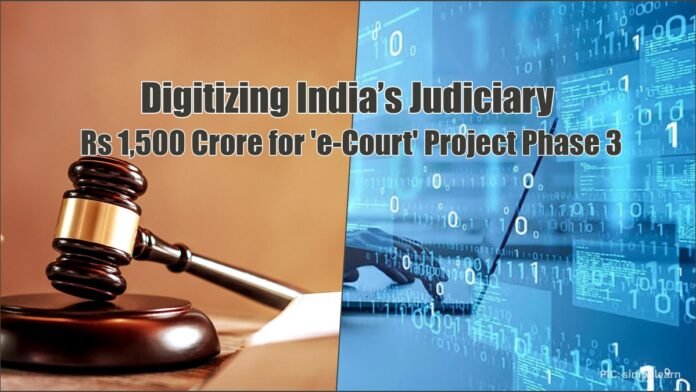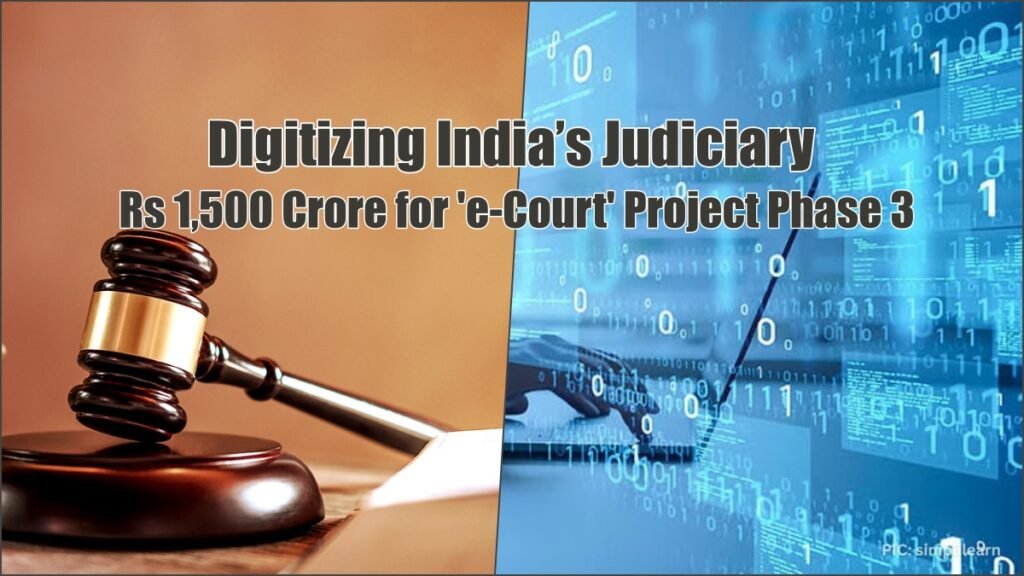
New Delhi: In a significant move aimed at modernizing the judicial system, Finance Minister Nirmala Sitharaman presented the Union Budget 2024-25 today, allocating Rs 1,500 crore for the third phase of the ‘e-Court’ project under the Law Ministry. This phase focuses on upgrading the digital infrastructure of lower courts nationwide.
Overview of ‘e-Court’ Project Phase 3
Approval and Financial Outlay:
- In September last year, the Union Cabinet approved Phase 3 of the ‘e-Court’ project as a central sector scheme.
- Total financial outlay: Rs 7,210 crore.
- Implementation duration: Four years.
Objectives:
- Digitization of all court records.
- Inclusion of both old and pending cases.
Budget Allocation Breakdown:
- Digitization of Documents: Estimated cost of Rs 2,038.40 crore for digitizing 3,108 crore documents.
- Cloud Technology Implementation: Shift to cloud technology with 25 petabytes of storage, costing Rs 1,205.20 crore.
- Virtual Courts Setup: Establishment of 1,150 virtual courts at Rs 413.08 crore.
Key Features of Phase 3
Digital Infrastructure Upgrade:
- Creation of a robust digital infrastructure to support virtual court hearings.
- Establishment of a paper-free interface for seamless interaction between courts, litigants, and stakeholders.
Technological Advancements:
- Enhanced data storage using cloud technology, ensuring secure and efficient access to court records.
- It improved case management and tracking systems for better judicial administration.
Historical Context:
- The ‘e-Court’ project, part of the National e-Governance Plan, has been operational since 2007.
- Phase 2 was completed last year, laying the groundwork for further technological integration in Phase 3.
Benefits and Impact
Efficiency and Accessibility:
- Streamlined judicial processes through digitization and virtual court systems.
- Reduced backlog of cases and faster resolution times.
- Enhanced accessibility for litigants and legal professionals.

Future Prospects:
- Establishment of a unified technology platform for the judiciary.
- Expansion of virtual courts to handle a wider range of cases.
- Continuous improvement of digital tools and resources to support judicial functions.
The allocation of Rs 1,500 crore for the ‘e-Court’ project in the Union Budget 2024-25 underscores the government’s commitment to leveraging technology to enhance the efficiency and effectiveness of the Indian judiciary. With the successful implementation of Phase 3, the judicial system is set to become more transparent, accessible, and resilient.






















































